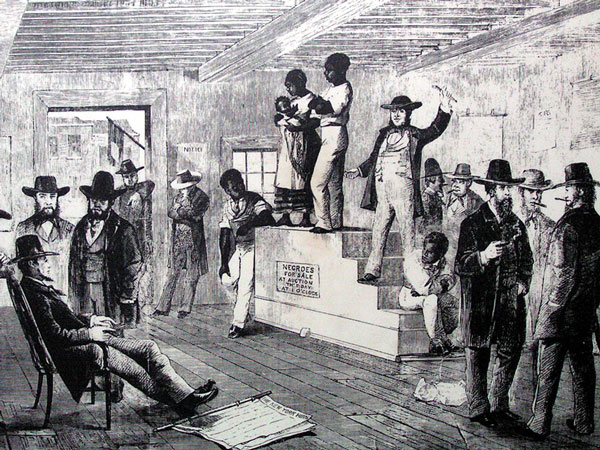BLACK SOCIAL HISTORY Black Laws Denied African-Americans Equality


Two African-American children born into the life of slavery in America, long before either of them would even dare dream of freedom and equality. Photo Credit: Wikipedia
By Russell Roberts.
As most people know, the original 13 colonies had and used slaves, and Black Laws denied African-Americans equality for centuries. However, as new states began to grow out of the vast areas in the west, did blacks find the freedoms denied them in the more established areas of the East in these wide-open spaces.
Sadly, the answer is “no,” because of the Black Laws.
Designed to deny African-American equality and freedom, the Black Laws denied African-Americans the right to vote, hold office, serve on a jury, sue in court, testify in court against a white person, take an oath, or join the militia. As people migrated from the East, Black Laws came with them, eventually reaching all the way to the West Coast.
For example, in 1807, Ohio prohibited African-Americans from entering the state without posting a $500 bond, a large sum for the times. Another factor Ohio required were the signatures of two white men guaranteeing the blacks’ good behavior. Although the state’s constitution prohibited slavery, there was a big difference between that and actual support of African-American rights.
In 1803, the Indiana Territory passed a law that denied blacks the right to testify against whites in court. Ten years later, the territorial legislature passed a law ordering all free blacks migrants to leave the territory in 15 days or receive 39 lashes, with this barbarous act repeated every 15 days the person remained in the territory.
And so it went as the western migration continued. Illinois, Michigan, Indiana, and Iowa not only forbade interracial marriages, it nullified those already in existence. In 1853, the Washington territory decided to allow only whites the right to vote. A few years later, regions like Nebraska, New Mexico, and Utah – which each only contained a handful of African-Americans – restricted voting to only whites.
“Oregon is a land for white men,” stated the Oregon Weekly Times in 1857. So, it seemed, was the rest of the “wide-open” western U.S.




















































































































































































No comments:
Post a Comment